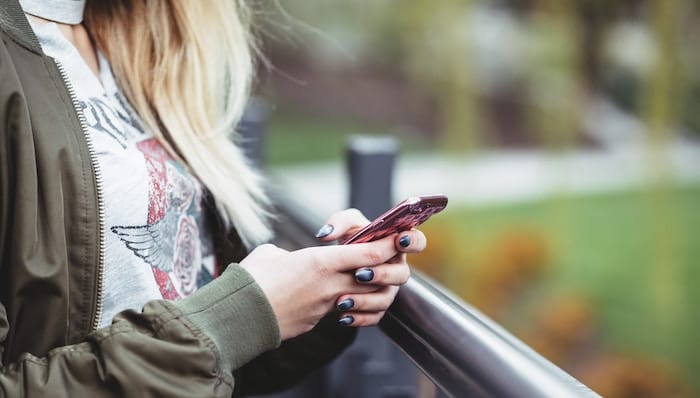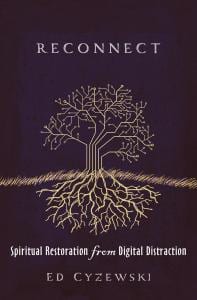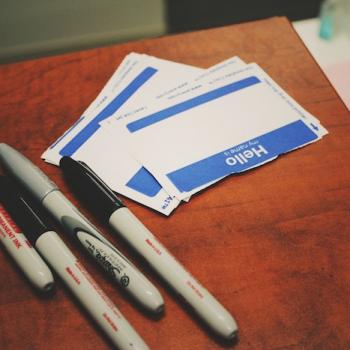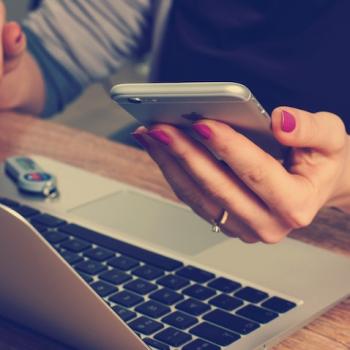If I listed all of the places where I’ve checked my phone, I could keep myself busy for quite a while. From red lights, to waiting in line at Kroger, to the playground, my couch early in the morning, to church, I’ve used my phone way more often than was necessary.

In fact, I’ve made a concerted effort to stop this dopamine-driven phone checking habit by making my phone as useless as possible. Every time a website suggests I download their app, my uniform response is, “Most certainly NOT.”
I could make my phone really, really useful, managing my blog, tracking real estate trends in our town, messaging my friends in fifteen different ways on all of the social media apps available, scanning ticket apps for regional events, and accessing all kinds of spiritual practices on my phone. Some churches manage childcare and Sunday school plans through apps, while I’ve learned to more or less depend on my apps such as weather, maps, and the alarm feature on my clock app.
This shift toward making our phones more useful has fueled sharp increases in smartphone use.
According to Pew Research, screen time estimates range between one to four hours per day for most smartphone users. That doesn’t even include time spent on a computer.
Psychologist Larry Rosen tracked how often high school students opened their phones daily and found that “participants had gone from unlocking their phones about 56 times a day in 2016 to 73 times a day in 2018.”
Making our phones more useful by adding more apps can set us up to crave the rewards of new notifications, new updates, and constant access to distractions and new “content” to keep our minds busy. We can tell ourselves that we are keeping up with friends or sending important work updates, but at what cost?
How much time do we lose because of our phone use? Are we interrupting a chance to pray or simply filling our minds with so many thoughts and worries that can barely slow our spinning minds to rest in God’s loving presence?
I still use maps and weather apps on my phone, but I have tried to make it as useless as possible. If anything is useful, I track my time on the Moment app to keep myself honest.
There will always be days when I need to use my phone more often for messages, calls, directions, or whatever else. However, a highly useful phone presents endless opportunities for distractions and a busy mind.
As our days and our minds fill up with phone use, the care of our souls becomes a front and center issue. What is left for soul care? What would it look like if soul care come first?
A helpful step in placing soul care first in my life is shielding myself from constant access to a highly useful smartphone. That at least gives me a fighting chance.
Learn more about smartphones and space for spirituality in my next book,
releasing June 2, 2020 from Herald Press:
Reconnect: Spiritual Restoration from Digital Distraction
Photo by freestocks.org on Unsplash

















